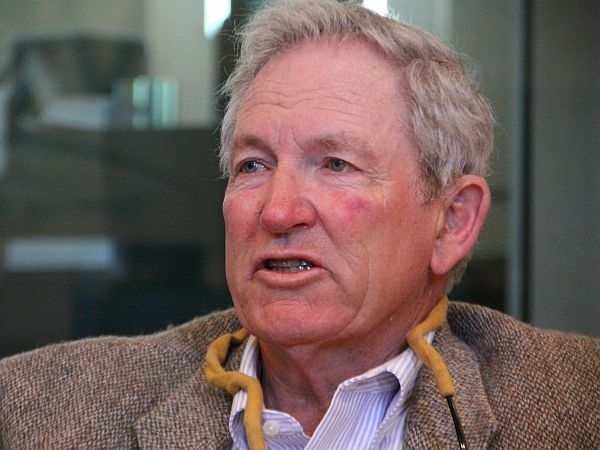 The weakness of the Vermont Republican Party’s lineup of contenders for statewide office was thrown into stark relief by the outcome of Tuesday’s Democratic primary election to nominate its candidate for attorney general. The hard-charging challenge by Chittenden Country State’s Attorney T.J. Donovan left the incumbent Bill Sorrell a winner by a whisker, but badly wounded in the process.
The weakness of the Vermont Republican Party’s lineup of contenders for statewide office was thrown into stark relief by the outcome of Tuesday’s Democratic primary election to nominate its candidate for attorney general. The hard-charging challenge by Chittenden Country State’s Attorney T.J. Donovan left the incumbent Bill Sorrell a winner by a whisker, but badly wounded in the process.
It would be hard to imagine a more perfect outcome for Sorrell’s Republican opponent, Jack McMullen. Sorrell’s positions on the issues of how to handle law enforcement and his performance representing Vermont legislation before the federal courts were hammered for months by Donovan, apparently with considerable success. And Sorrell had to spend a solid chunk of his available money to fight off the challenge.
In a normally competitive political environment, the result of the Democratic primary would leave McMullen with a relatively open road to the general election, not a cakewalk certainly, but a clear shot at winning the seat. Such an outcome, however, requires that the Republicans have a strong, credible candidate already in place and ready to go. There’s the rub.
McMullen falls short. It’s not that he lacks paper credentials. He is an attorney and a business consultant with considerable experience and apparently a solid record of performance. He would be a terrific candidate to be an attorney and a business consultant. From the perspective of electoral politics, however, he has some shortcomings.
Take his political experience to date. In 1998, he ran for the Republican nomination for U.S. Senator to oppose the Democratic incumbent, Pat Leahy. He first had to fight a primary election against a Tunbridge farmer, Fred Tuttle, who was clearly a frivolous candidate, but who still beat McMullen. Tuttle then pretty much endorsed Leahy.
The whole Fred Tuttle thing was uproarious good fun for everybody, except for McMullen, who was abandoned entirely by his own party. He wasn’t deterred, however, and ran again in 2004. This time he won the GOP nomination, which earned him the chance to get flattened by Leahy: he got somewhere around a quarter of the vote, while Leahy fell just short of 70 percent. Beating Leahy was probably never in the cards, but a solid Republican in Vermont should expect to get 35 to 40 percent of the vote.
What else do you need to be a credible candidate? Mainly money and infrastructure-people to help you in all sorts of ways. Vermont politicians usually can’t afford big staffs, but they need, at a minimum, a campaign manager, and a few key people to do research on issues, deal with the press, and manage volunteers and the like.
McMullen has almost no infrastructure. He has a campaign manager, Casey Toof, but Toof’s focus has to be split, given that he is running himself for a House seat from Franklin County. Beyond that McMullen has some help from people he calls consultants on issues such as communication, but that’s about it. As for things like offices in various parts of the state, he intends to piggyback on the statewide apparatus operated by State Sen. Randy Brock, the Republican candidate for Governor.
How about money? McMullen won’t disclose his intentions on fund raising, which is perfectly reasonable strategically. But the information that shows up in his filings with state election officials adds up to a pretty sparse outlook. He raised no money at all in the filing period ending July 15. The Aug. 15 filing showed a total of $18,750, all of it contributed by 13 donors, none of whom are from Vermont. His filings of contributions of under $100 number three, for a total of $220.
McMullen says that he expects to raise enough money from now forward to run a competitive campaign, including television advertising. It is nonetheless striking how barebones it all is. He shows no Vermont contributions at all, so far. And while it wouldn’t be reasonable to expect national interest in a down-ballot race in Vermont, there is a Republican national attorneys general organization, the counterpart to the Democratic AGs group that put $184,000 into the Sorrell race and which probably accounted for his margin over Donovan.
McMullen says he expects no money from the Republican AGs. "There are a lot of big races this year," he says.
One of the things that the Donovan-Sorrell squeaker taught us in the last week is not to rule out long shots.
Still, when it comes to the Attorney General’s race, McMullen’s shot is very long.